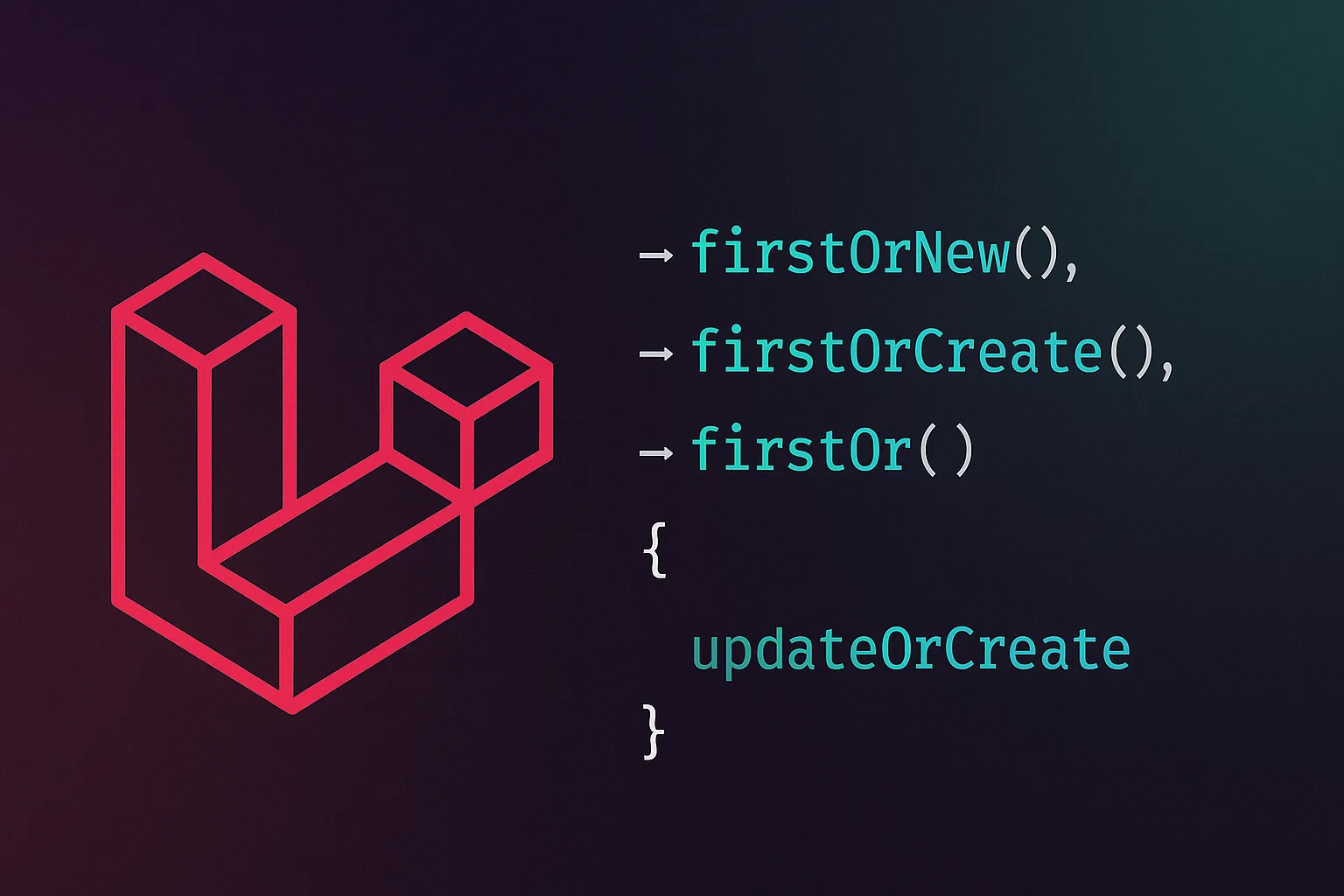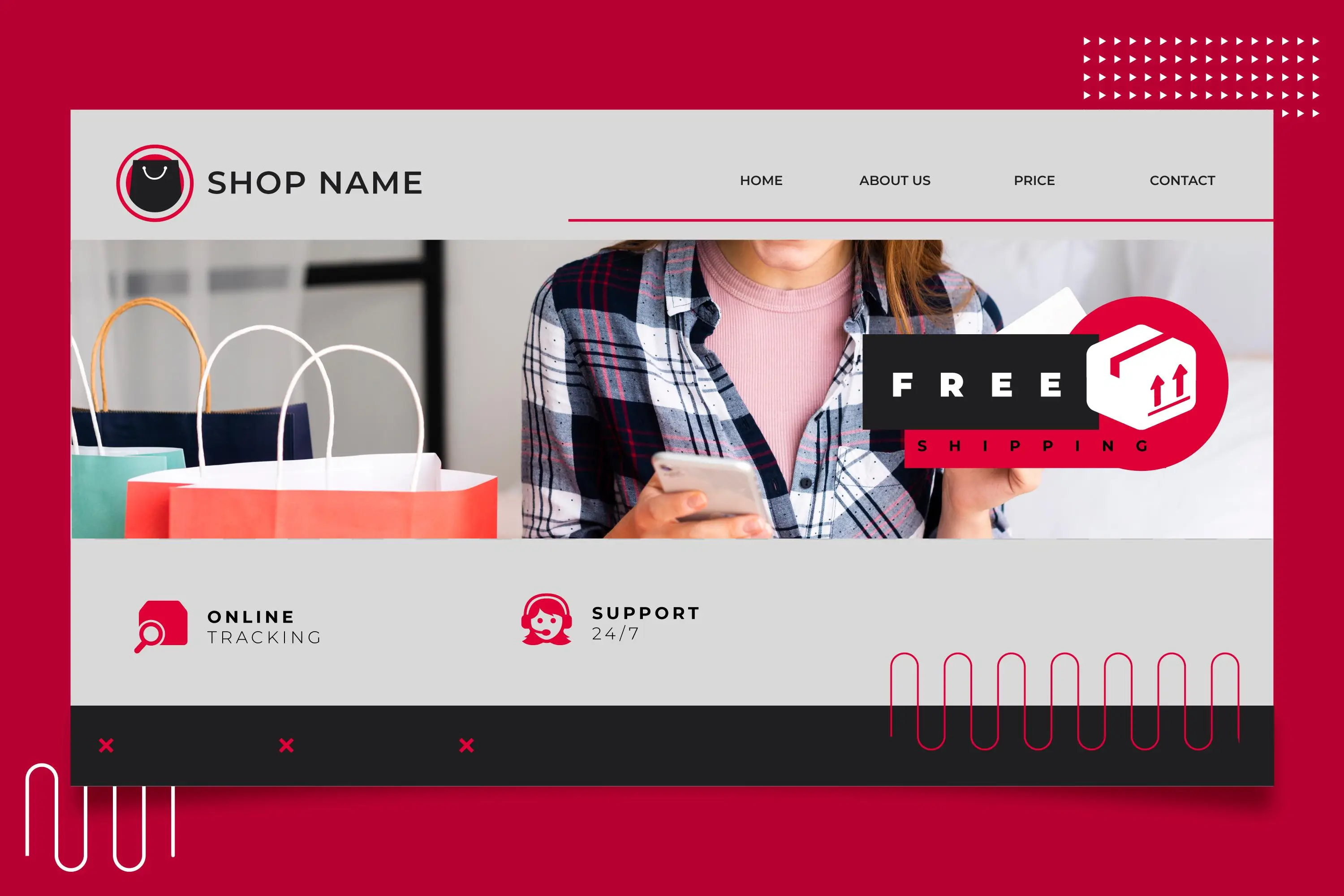
Table of Contents
- 1. ChatGPT (OpenAI): The New Standard of Communication and Productivity
- 2. AI Content Production Tools: Automation of Creativity (Jasper, Copy.ai, Sudowrite)
- 3. AI Health Platforms: A New Era in Diagnosis and Treatment (Ada, K Health, Tempus)
- 4. AI Marketing Applications: Data-Driven and Personalized Strategies (HubSpot AI, AdCreative.ai)
- 5. AI-Powered Customer Service Bots: 24/7 Uninterrupted Support (Zendesk, Tidio, Intercom)
- 6. AI-Powered Search: Instant Access to Enterprise Knowledge (Perplexity, Guru, Meilisearch)
- 7. Cybersecurity AI Applications: Protect Your Digital Fortress (Darktrace, CrowdStrike)
- 8. AI-Based Finance and Accounting Tools: Automation and Insight (Zoho Books, QuickBooks, Vic.ai)
- 9. Personal AI Assistants: The Peak of Individual Productivity (Google Gemini, Claude, Microsoft Copilot)
- 10. AI-Based Visual and Video Production Tools: Pushing the Boundaries of Imagination (Synthesia, Midjourney, Canva Magic Studio)
- Conclusion: Are You Ready for the AI Revolution?
Share
In today's business world, where digital transformation is advancing at a dizzying pace, the key to standing out from the competition and achieving sustainable growth is now hidden in a single technology: Artificial Intelligence (AI). Once the subject of science fiction movies, artificial intelligence is now revolutionizing everything from operational efficiency to customer experience, marketing strategies to financial management. As we approach 2025, artificial intelligence is not just an option for businesses, it is becoming a necessity. So how will you determine your route in this ocean of technology? Which AI business applications have the potential to carry your company into the future?
In this comprehensive guide, we will examine 10 critical areas that stand out among the 2025 best AI applications and offer tangible benefits to companies in different sectors. Our aim is to reveal the potential of AI for business solutions and guide you on how to use these technologies strategically. On this journey, get ready to meet AI-powered business solutions that increase efficiency, reduce costs and open the doors to innovation. Here are the best AI tools and platforms that will shape the future of your business.
1. ChatGPT (OpenAI): The New Standard of Communication and Productivity
ChatGPT, developed by OpenAI, is perhaps the most popular face of the AI revolution. Far from being just a simple chatbot, it acts as a Swiss army knife when it comes to AI benefits for businesses. With its advanced language understanding and generation capabilities, ChatGPT finds a place in almost every stage of business processes, radically increasing efficiency.
Strategic Uses and Benefits for Business
ChatGPT’s greatest strength lies in its versatility. It provides businesses with unprecedented speed and flexibility in areas such as text production, customer support, coding assistance, data analysis, and strategic content creation. For example, instead of spending hours creating blog posts, social media posts, email newsletters, and advertising copy, your marketing department can get multiple creative drafts from ChatGPT in seconds. This not only saves time, but also provides powerful inspiration to overcome creative blockages.
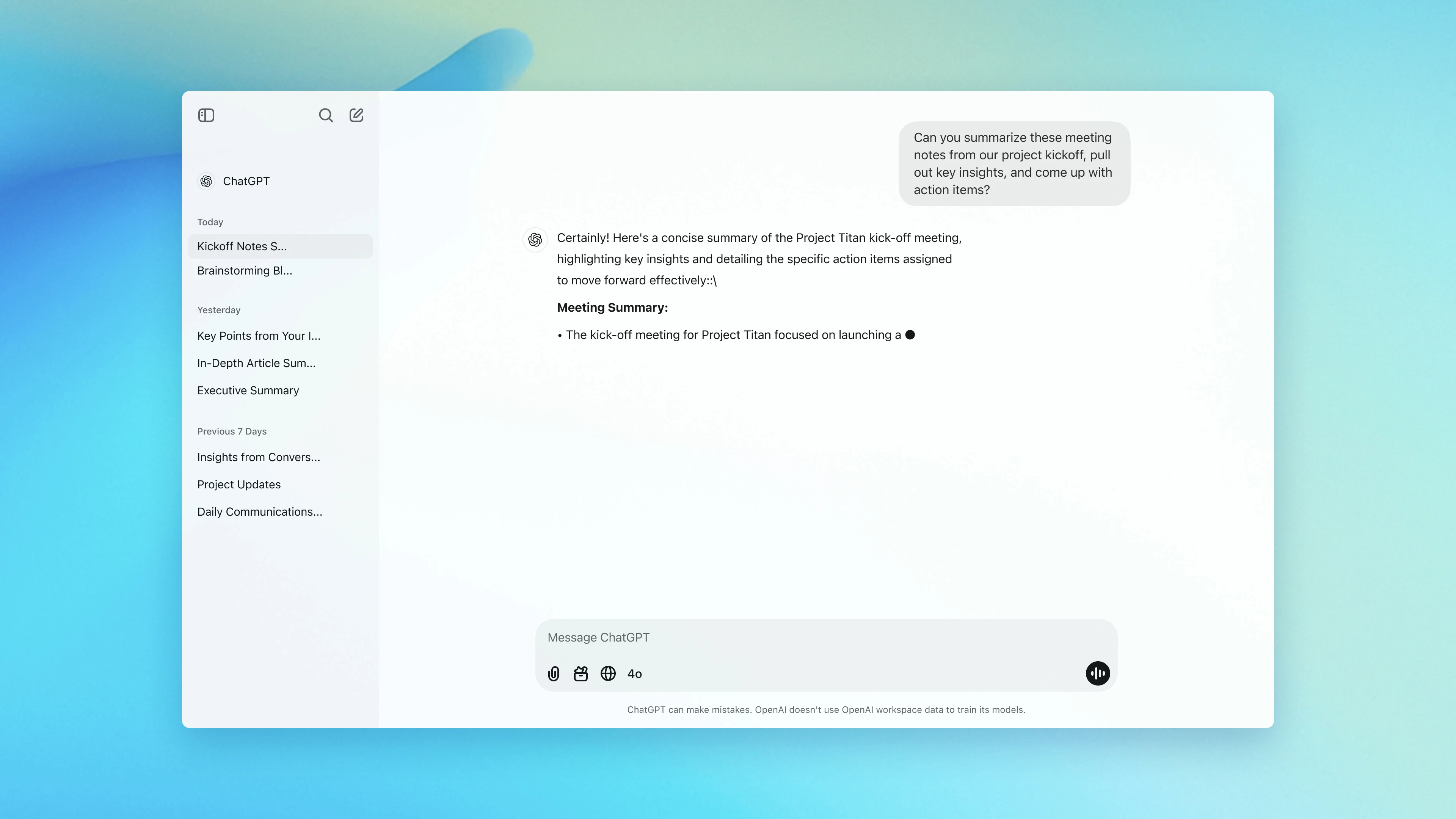
In the customer service arena, ChatGPT can be a starting point for basic AI customer service solutions. It can answer frequently asked questions, provide users with product information, and instantly resolve simple issues. This allows your customer representatives to focus on more complex and valuable issues. It can also act as a coding assistant for software development teams, creating code snippets, debugging, and even providing logical frameworks for complex algorithms. This significantly speeds up development processes and shortens the innovation cycle.
2025 Expectations and Future Perspective
We predict that ChatGPT and similar language models will develop further towards 2025. They will become more personalized, industry-specific and proactive. Special ChatGPT versions trained with companies' own data sets will work like a "digital expert" with corporate knowledge and optimize internal processes. They will undertake much more complex tasks, from preparing meeting summaries to preparing strategic reports, from market research analyses to identifying potential risks. In short, ChatGPT will transform from a tool to a strategic business partner in 2025.
2. AI Content Production Tools: Automation of Creativity (Jasper, Copy.ai, Sudowrite)
Content continues to be the king of digital marketing. However, consistently producing high-quality, original and SEO-compatible content is both time-consuming and costly for businesses. This is where AI content production tools come into play. Platforms like Jasper (formerly Jarvis), Copy.ai, and Sudowrite have become the greatest helpers for marketing and content teams. These tools not only bring words together, but also create text that matches your brand’s tone of voice, attracts your target audience, and ranks you higher on search engines.
Strategic Uses and Advantages for Businesses
These platforms are the most concrete examples of AI for business applications. If you have an e-commerce site, you can prepare original and convincing product descriptions for hundreds of products in minutes. Digital marketing agencies can produce a variety of content, such as blog posts, social media calendars, Google and Facebook ad texts, for different clients in a scalable way. This is one of the cornerstones of the AI marketing tools category.
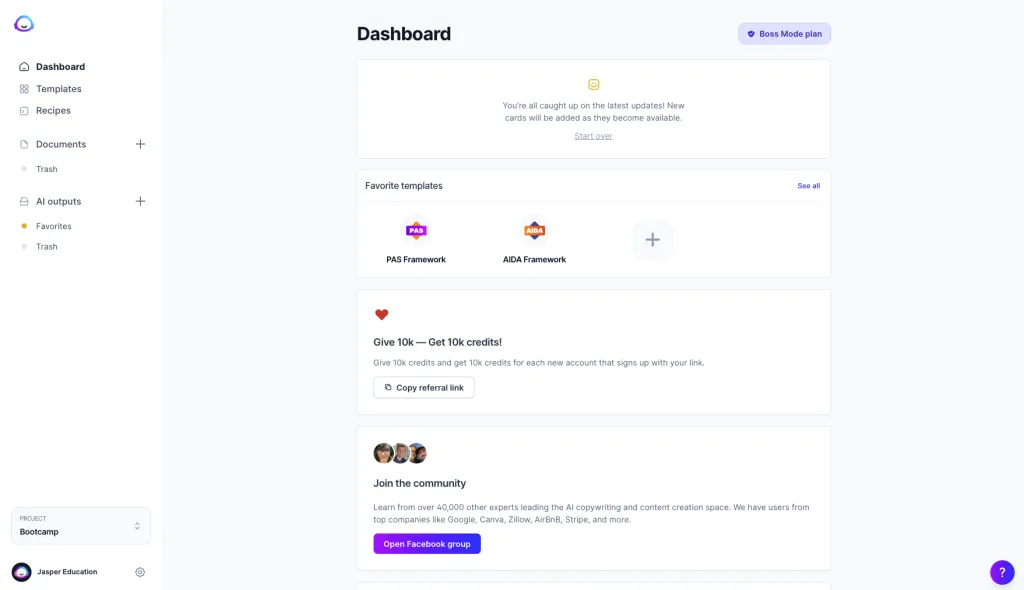
One of the biggest advantages of these tools is that they stimulate creativity. In moments of "writer's block," they can revitalize the process by offering you different title suggestions, paragraph starters, or article outlines. From an SEO perspective, they help you increase the search engine performance of your content by integrating certain keywords naturally into the text. This plays a critical role in increasing your organic traffic and brand awareness.
2025 Expectations and Future Perspective
The capabilities of these tools will expand even further in the future. They will not only produce text, but also strategically plan the content. They will be able to predict which topics will receive more interaction based on competitor analysis, market trends, and target audience data. They are also expected to transform into multimodal platforms that can produce visuals, videos, and infographics along with text. In 2025, these tools will relieve the burden on marketing departments by acting as a full-fledged “content strategist” and will bring the concept of business automation with AI to the forefront of the content space.
3. AI Health Platforms: A New Era in Diagnosis and Treatment (Ada, K Health, Tempus)
The healthcare sector is one of the most critical areas where artificial intelligence directly touches human life. AI health applications offer revolutionary innovations from diagnosing diseases to personalizing treatment processes using big data analysis, machine learning, and image processing technologies. Platforms like Ada, K Health, and Tempus increase the quality, accessibility, and efficiency of healthcare services by providing powerful tools for both patients and healthcare professionals.
Strategic Uses and Benefits for Businesses
The main strength of these platforms is their ability to analyze vast amounts of medical data (patient records, lab results, genetic information, medical literature) with speed and accuracy far beyond human capacity. For example, platforms like Tempus can analyze genetic and molecular data of cancer patients to recommend the most effective treatment methods to oncologists. This forms the basis of the concept of “personalized medicine” and increases the likelihood that patients will respond better to treatment.
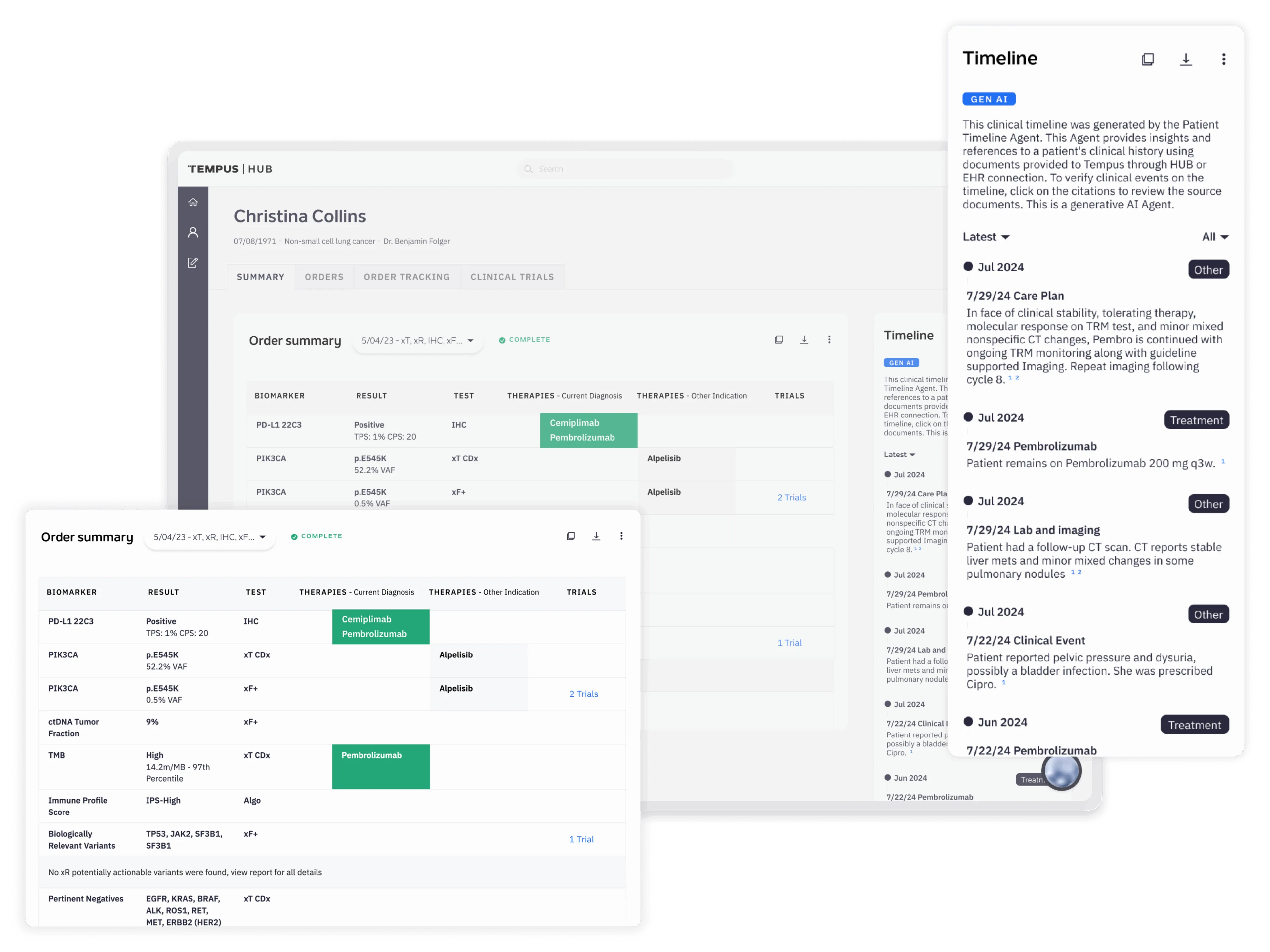
Symptom checker apps like Ada and K Health provide preliminary information about possible ailments based on users’ complaints and direct them to the right medical unit. This reduces the burden on the healthcare system, prevents unnecessary doctor visits, and encourages early intervention in emergency situations. For hospitals and clinics, such AI healthcare platforms can be used to automate patient triage, optimize appointment management, and increase operational efficiency. In the field of image analysis, AI significantly increases diagnostic accuracy by helping radiologists detect abnormalities (tumors, lesions, etc.) in MRI, CT, and X-ray images.
2025 Expectations and Future Perspective
In 2025 and beyond, AI health applications will become more proactive and predictive. By analyzing instant data collected from wearable technologies (smart watches, sensors), they will be able to identify risk factors before a disease occurs and provide personalized preventive advice to individuals. Drug development processes will accelerate thanks to AI, and the discovery of new treatments will be facilitated. For doctors, AI will be an indispensable assistant that allows them to instantly access the most up-to-date medical information through clinical decision support systems. This will continue to be one of the most humane and influential areas on the top AI applications for business 2025 list.
4. AI Marketing Applications: Data-Driven and Personalized Strategies (HubSpot AI, AdCreative.ai)
Modern marketing is now based on data rather than intuition. Understanding customer behavior, reaching the right target audience, and using the marketing budget in the most efficient way are among the biggest goals of businesses. AI marketing tools play a critical role in achieving these goals. Platforms like HubSpot AI and AdCreative.ai are designed to automate marketing processes, optimize campaigns, and maximize return on investment (ROI). These tools are the reflection of the AI for business productivity motto in the marketing world.
Strategic Uses and Advantages for Businesses
AI marketing applications touch every stage of marketing. Platforms like AdCreative.ai can produce hundreds of different ad creatives (images and text) in seconds. These creatives are optimized according to the demographics, interests, and past behaviors of your target audience. This allows you to conduct A/B tests much faster and on a larger scale, and easily identify ads that provide the highest conversion rates. This directly increases the efficiency of your ad spend.
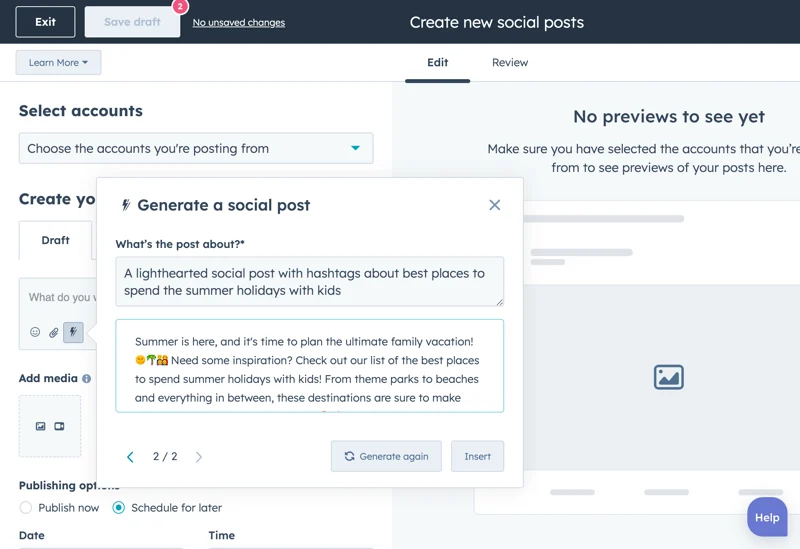
More comprehensive platforms like HubSpot AI analyze customer relationship management (CRM) data to segment customers. It can predict which customers are more likely to buy, which customers are at risk of churning. Based on this information, you can create personalized email campaigns, offer special offers, and increase customer loyalty. They also provide powerful insights to marketers on topics such as SEO analysis, social media management automation, and tracking market trends.
2025 Expectations and Future Perspective
In 2025, AI marketing applications will usher in the era of "hyper-personalization". They will design a completely customized marketing journey for each customer. They will analyze a customer's entire digital footprint, from their browsing behavior on a website to their likes on social media, and present them with the most appropriate product or content for their current needs at the right time. Predictive analytics capabilities will further develop and allow companies to proactively shape their strategies by predicting changes in market demand months in advance. This is an indispensable skill set for marketing managers looking for the best AI tools for business.
5. AI-Powered Customer Service Bots: 24/7 Uninterrupted Support (Zendesk, Tidio, Intercom)
Customer satisfaction is one of the most important factors in the success of a business. Customers now expect instant, effective, and personalized support. To meet this expectation, providing a service based on human power 24/7 is quite costly. AI-powered customer service bots offer a perfect solution to this problem. Artificial intelligence bots offered by leading platforms such as Zendesk, Tidio and Intercom transform the customer experience, reducing costs and increasing satisfaction.
Strategic Uses and Advantages for Businesses
These bots are much smarter than older generation chatbots that work with simple "if-then" logic. Thanks to natural language processing (NLP) technology, they understand customers' questions in context and provide human-like answers. Their most common use is to instantly answer frequently asked questions (FAQs). They prevent customer representatives from wasting their time by resolving standard questions such as order status, return policy and product features in seconds.
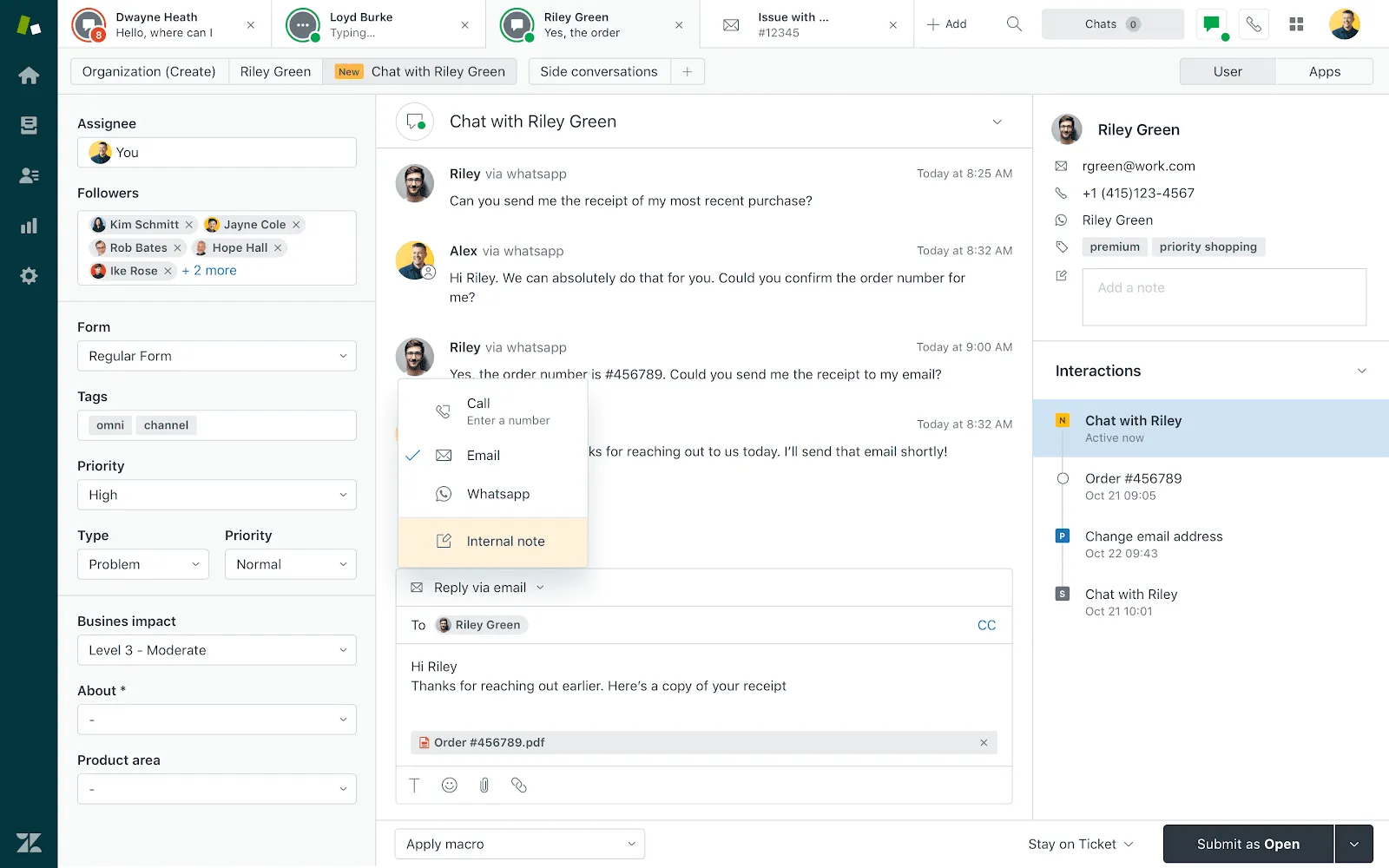
More advanced bots can integrate with your company’s knowledge base and CRM system. This way, they can provide personalized solutions by looking at the customer’s past purchases or support requests. For example, when a customer asks, “Where is my order?”, instead of just giving general information, the bot can give a specific and proactive response like, “Hello Ahmet, your order number 12345 was shipped yesterday and is expected to reach you tomorrow. Here is your tracking link for your shipment: link.” They provide a seamless experience by intelligently directing complex issues they cannot solve to the right representative in the relevant department, along with the entire conversation history. This is the pinnacle of efficiency in AI customer service solutions.
2025 Expectations and Future Perspective
By 2025, these bots will gain the ability to communicate more emotionally and empathically. They will be able to understand emotions such as disappointment, anger, or satisfaction from the customer’s text or tone of voice (in the case of voice assistants) and shape their responses accordingly. They will also advance in providing proactive support; For example, they can automatically respond when a user has been waiting too long on a website’s checkout page with a message like, “Having trouble paying? How can I help you?” These AI-powered business tools will transform customer service from a cost center to a proactive revenue and loyalty center.
6. AI-Powered Search: Instant Access to Enterprise Knowledge (Perplexity, Guru, Meilisearch)
As companies grow, the amount of information and data they produce increases exponentially. Reports, presentations, emails, records in project management tools, customer data… Finding what you’re looking for in this vast pile of information can be a serious time-waster for employees. AI-powered search engines and enterprise search tools are designed to eliminate this chaos. General-purpose search engines like Perplexity, as well as enterprise solutions like Guru and Meilisearch, are revolutionizing access to internal information.
Strategic Uses and Benefits for Businesses
Traditional search engines give you a series of document links based on keyword matches. AI-powered search is much smarter. It understands the questions you ask in natural language and gives you the direct answer. For example, instead of searching for “Where is the marketing budget report from last quarter?”, you can ask “How much did we spend on social media ads last quarter?” The AI scans the relevant reports, analyzes the data, and gives you a clear answer like “$15,000 was spent on social media ads last quarter.”

Platforms like Guru add a layer of “fact-checking.” Experts in the company verify that certain information is accurate and up-to-date. This gives employees confidence that the information they are looking for is trustworthy. This is especially vital for sales and customer support teams; because it ensures that customers are always provided with accurate and up-to-date information. Developer-friendly tools like Meilisearch make it easy to integrate extremely fast and intelligent search functions into applications and websites. These AI business solutions will be one of the pillars of corporate efficiency in 2025.
2025 Expectations and Future Perspective
In the future, enterprise search will not be solely text-based. You will be able to search for a topic discussed in a meeting record, a graphic in a presentation, or a specific element in a design file. AI will understand and index all data in different formats (video, audio, visual, text). In addition, search results will be more personalized and contextual. A sales representative's search results will be optimized according to the user's role and current task, unlike an engineer's search results. When access to information becomes this easy, the AI with productivity increase will be felt in every department.
7. Cybersecurity AI Applications: Protect Your Digital Fortress (Darktrace, CrowdStrike)
As digitalization increases, cyber threats are becoming more complex and dangerous. Traditional security measures (antivirus software, firewalls) can no longer be sufficient against advanced cyberattacks. Cybersecurity AI applications are the most effective line of defense against these new-generation threats. Leading platforms like Darktrace and CrowdStrike use machine learning to detect anomalies and threats that human analysts may miss.
Strategic Uses and Benefits for Businesses
The greatest power of AI in cybersecurity is its ability to learn what is “normal.” These platforms continuously monitor your company’s network traffic, user behavior, and system activity, and create a “normal behavior” profile. Whenever there is any deviation from this profile (for example, an employee trying to access a server they normally never access in the middle of the night, a device suddenly starting to send large amounts of data to an unknown address abroad), the AI immediately flags it as an anomaly and alerts the security team.
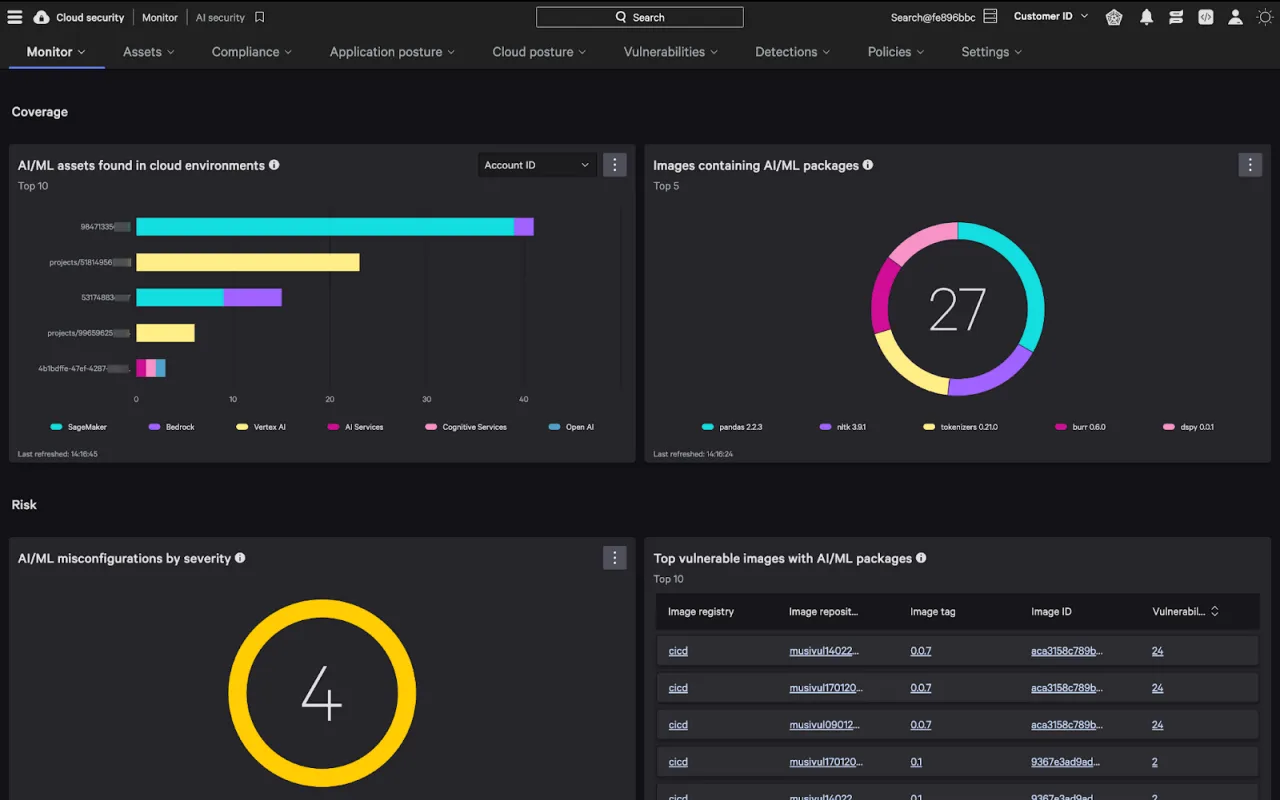
This proactive approach allows you to detect and stop threats before they can cause harm. Darktrace, which it calls its “corporate immune system,” can detect even previously unseen “zero-day” attacks. CrowdStrike, on the other hand, constantly monitors every device (computer, server, mobile device) with cloud-based endpoint protection to block malware and attacker behavior. These AI-powered business tools are indispensable for protecting companies’ most valuable asset: their data.
2025 Expectations and Future Perspective
In 2025, AI in cybersecurity will not only provide detection and alerting, but will also develop “autonomous response” capabilities. When a threat is detected, AI can take action within seconds to sever the dangerous connection, isolate the affected device from the network, or roll back the suspicious transaction. This provides a critical speed advantage in preventing the spread of a cyber attack. Additionally, AI-powered “threat hunting” will become more prevalent, with AI proactively seeking out potential vulnerabilities and attack vectors and recommending their closure. In the list of Artificial intelligence business applications 2025, cybersecurity will continue to be one of the fastest-growing areas.
8. AI-Based Finance and Accounting Tools: Automation and Insight (Zoho Books, QuickBooks, Vic.ai)
Finance and accounting departments are often overwhelmed with repetitive, manual, and error-prone tasks. Processes like invoice processing, expense tracking, data entry, and reporting consume valuable time. AI-based finance and accounting tools automate these processes, allowing finance teams to focus on more valuable work like strategic analysis and decision-making. AI accounting software like Zoho Books, QuickBooks, and Vic.ai are making financial management smarter, faster, and more accurate.
Strategic Uses and Benefits for Businesses
The most fundamental benefit of these tools is automation. For example, platforms like Vic.ai use AI to automatically read incoming invoices (using OCR technology), assign them to the appropriate expense category, and initiate approval processes. This eliminates manual data entry, reduces the risk of human error, and speeds up the invoice payment cycle. Platforms like Zoho Books and QuickBooks automatically categorize transactions and keep accounting records up to date by syncing your bank accounts and credit cards.
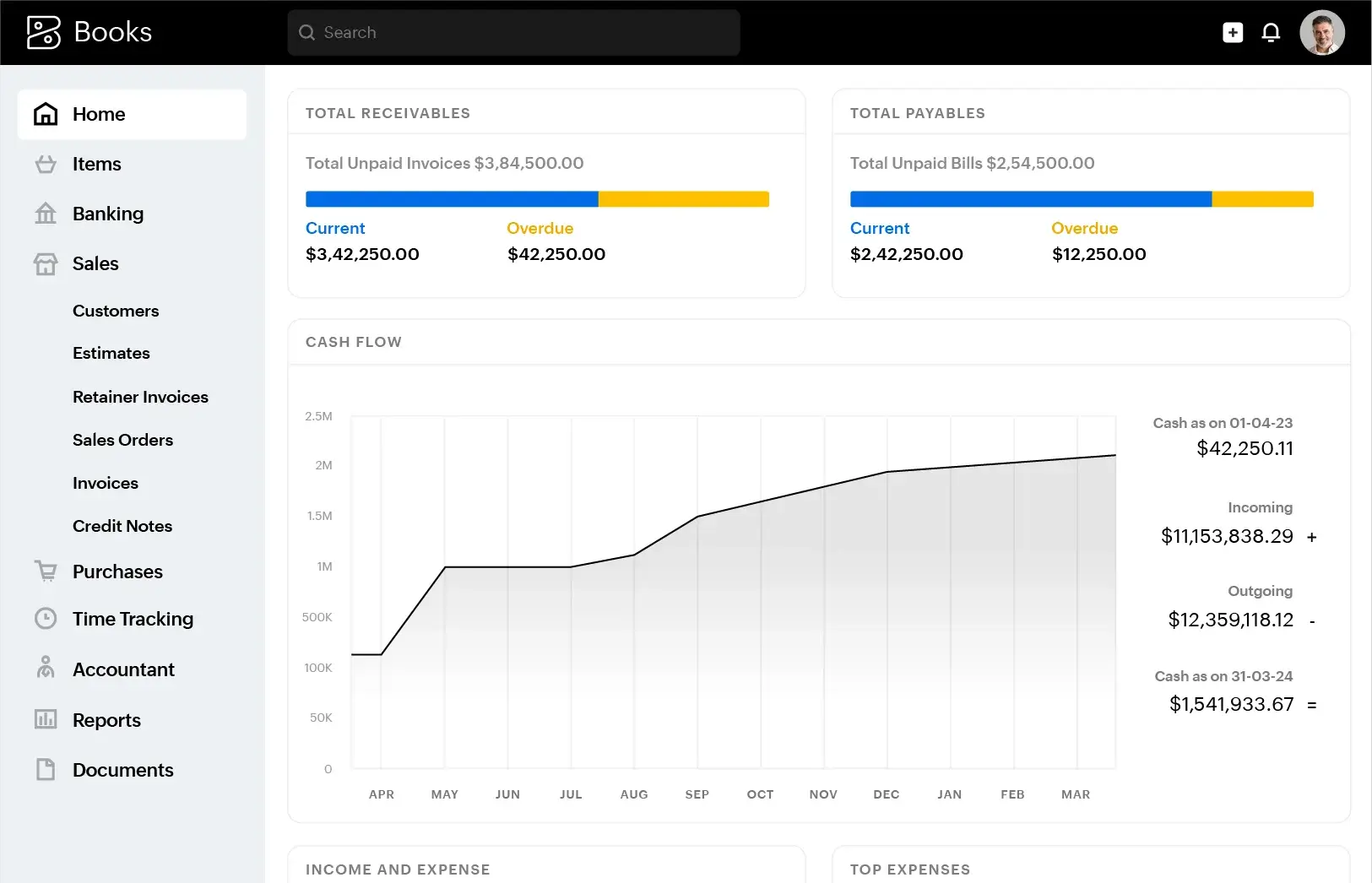
Beyond automation, these best AI software 2025 candidates offer powerful analytical capabilities. You can track your cash flow in real time, compare budgets and actual expenses, and forecast your future cash flow (cash flow forecasting). AI can detect and alert you to abnormal trends or potential fraud attempts in your financial data. This allows you to proactively manage your company’s financial health and make more sound decisions. The benefits of AI in business are most clearly seen in this area.
2025 Expectations and Future Perspective
In 2025, financial AI tools will take on a more predictive and advisory role. They will not only report on historical data, but will also be able to instantly perform scenario analyses such as “How will our cash flow be affected 6 months from now if we make X investment?” They will make intelligent recommendations to optimize supplier payments, take advantage of the most appropriate discounts, or manage exchange rate risk. The finance department will transform from a reactive record keeper to a proactive partner that determines the strategic direction of the company.
9. Personal AI Assistants: The Peak of Individual Productivity (Google Gemini, Claude, Microsoft Copilot)
Efficiency in the business world is not limited to the optimization of corporate processes; the individual productivity of each employee is also of great importance. Personal AI assistants come into play at this point, helping employees manage their daily tasks, access information faster, and work more efficiently. Tools such as Google Gemini, Anthropic's Claude, and Microsoft Copilot take on many tasks from email management to meeting preparation, giving employees back their most valuable asset: time.
Strategic Uses and Advantages for Businesses
These assistants are at the center of your digital work environment. Microsoft Copilot integrates with all Office 365 applications (Word, Excel, PowerPoint, Teams). For example, you can ask it to summarize a long email chain, create a PowerPoint presentation based on key points in a Word document, or create a transcript of a meeting in Teams and list action items. This reduces tasks that could take hours to minutes.
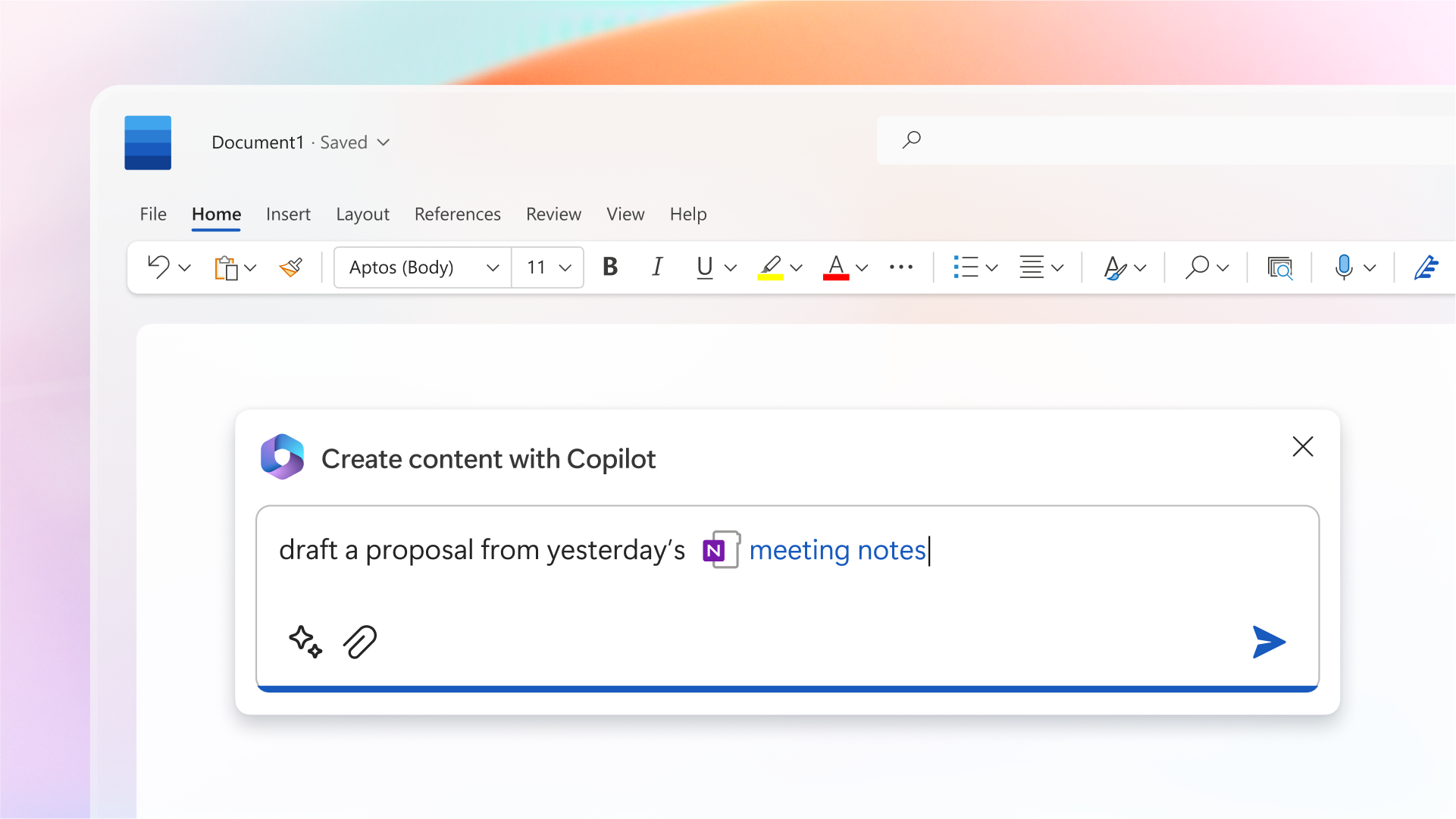
Google Gemini and Claude are powerful assistants for tasks such as research, brainstorming, and writing texts. They can research content for a presentation, write the first draft of a report, or create a text that explains a complex topic in simple terms. They also easily perform administrative tasks such as calendar management, meeting planning, and setting reminders. Thanks to these AI tools for companies, employees can focus more on tasks that require creativity and strategy, freeing them from routine and time-consuming tasks.
2025 Expectations and Future Perspective
In the future, personal AI assistants will become fully proactive by learning your work style and preferences. When you turn on your computer in the morning, you will be able to start your day with a greeting like "You have 3 important meetings today. I have prepared the relevant documents for the first meeting. I have also marked 2 emails that came in last night and require an urgent response. Do you want to start?" Working seamlessly across different applications and platforms, they will become a central "operations system" that manages your entire digital life. These assistants will redefine the concept of productivity with artificial intelligence at the individual level.
10. AI-Based Visual and Video Production Tools: Pushing the Boundaries of Imagination (Synthesia, Midjourney, Canva Magic Studio)
The power of visual content in marketing, education, and communication is indisputable. However, producing high-quality, original visuals and videos can be both expensive and time-consuming. AI-based visual and video production tools are revolutionizing this field, allowing everyone to easily produce professional-quality content. Platforms that produce visuals from text like Midjourney, tools that create videos with AI avatars like Synthesia, and solutions that automate design processes like Canva Magic Studio are rewriting the rules of content production.
Strategic Uses and Advantages for Businesses
These tools add creativity and cost-effectiveness to the list of AI advantages for businesses. With tools like Midjourney or DALL-E, you can create completely original visuals for your marketing campaigns, blog posts, or social media posts, limited only by your imagination. Without being dependent on stock photo sites, you can have images that perfectly match your brand identity and are copyright-free.
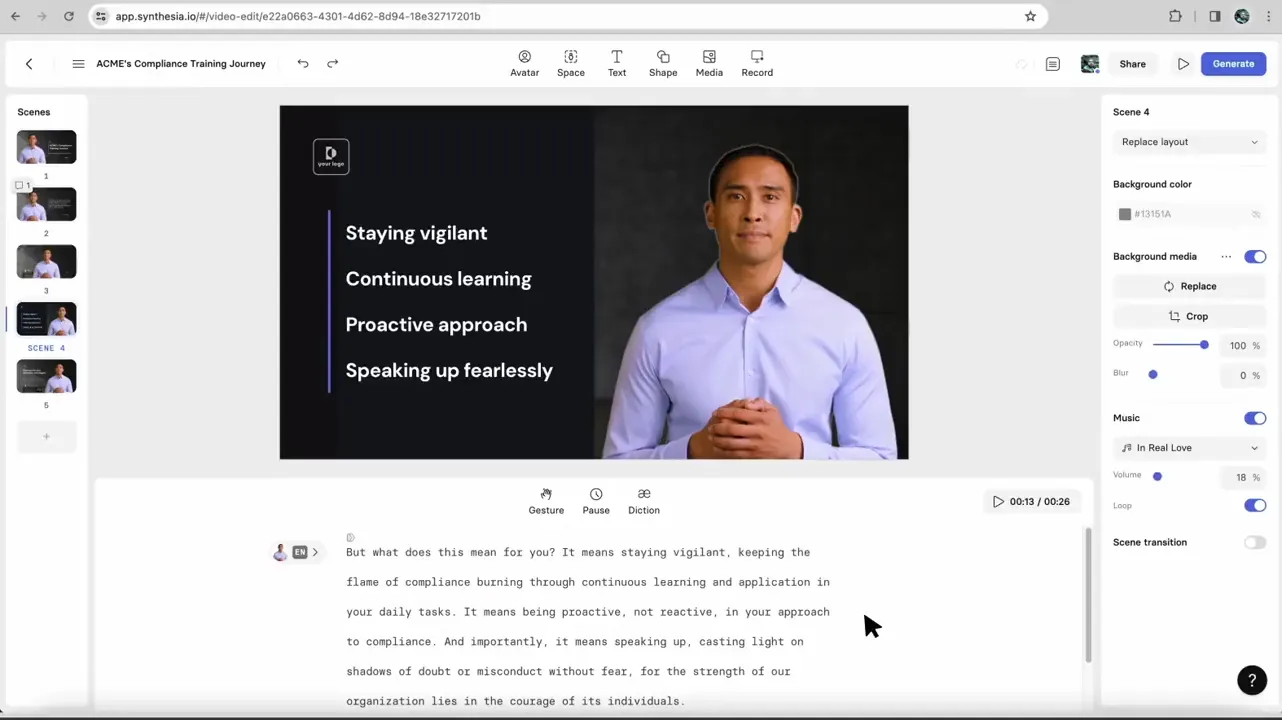
Platforms like Synthesia are revolutionizing video production. You type in text and an AI avatar of your choice creates a video by voicing it in the language and tone of voice you want. This is especially useful for educational videos, product launches, or internal announcements. It dramatically reduces video production costs and time by eliminating the need for a camera, studio, or actor. Canva Magic Studio, on the other hand, allows you to magically transform existing designs, create visuals from text, and speed up design processes. This forms the visual wing of the AI content creation tools category.
2025 Expectations and Future Perspective
In 2025, the quality and realism of these tools will increase even more. Text-to-video technologies (e.g. OpenAI Sora) will become widespread and it will be possible to create cinematic quality videos by simply writing a script. The production of 3D modeling and augmented reality (AR) content will also be facilitated by artificial intelligence. Marketers will be able to visualize and test different variations of a product in seconds. These tools will completely remove the technical and financial barriers to creativity, allowing every business to produce content like a media production company.
Conclusion: Are You Ready for the AI Revolution?
On the road to 2025, AI is no longer a distant future vision, but a competitive reality in today's business world. From customer service to marketing, from finance to cybersecurity, these ten areas we examined are just the beginning of the AI business applications 2025 trends. Businesses that adopt these technologies will increase their operational efficiency, reduce their costs, enrich the customer experience, and most importantly, create space for innovation.
The important thing is to see AI not as a cost, but as a strategic investment that will carry your company into the future. Choosing the right AI tools 2025 and intelligently integrating these tools into your business processes will take you one step ahead of your competitors and open the doors to sustainable growth. Do you need expert guidance to take the right steps on this transformation journey and determine the most suitable AI solutions for your company? Contact our team, let's unleash the potential of your business together.
“Writing is seeing the future.” Paul Valéry

